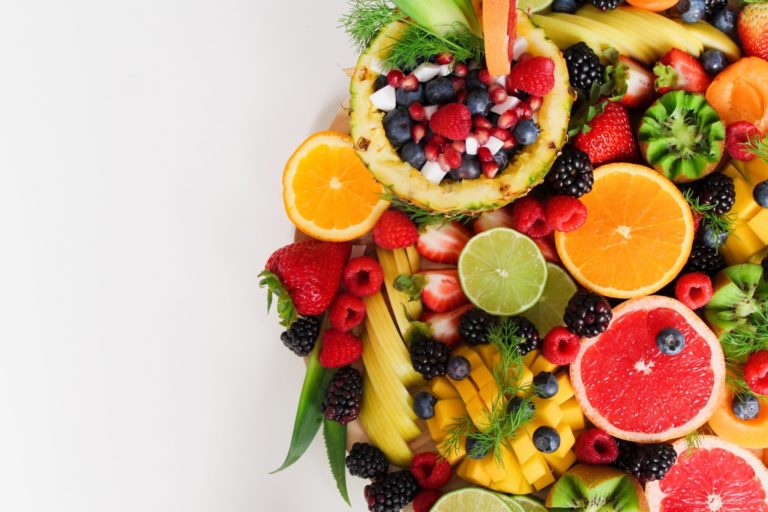We know you’ve been wondering…
There are a lot of health food words floating around these days. Grocery shelves are stocked full of products containing labels with some intriguing claims, especially for those who are not accustomed to the sudden shift.
From gluten-free to sugar-free, vegan and non-GMO, there is a lot of terminology to keep up with. Most of all, not all of these labels mean what they imply. For those who are interested in health and wellbeing, it is vital to do research and stay informed.
In this article, we cover eight of the ultra buzzy health food words that have been in circulation recently, going into depth about what they actually mean.
What Constitutes as a ‘Health Food’?
Before we dive into some commonly present health food words that are floating around, it may be first important to define what a ‘health food’ truly constitutes.
By definition, a health food describes a food of natural origins that is also said to have beneficial qualities for health and wellness. Health foods can be anything from greens and veggies to superfoods and other ingredients rich in nutrients. To be honest, the term is quite broad and, therefore, envelopes many things.
Here’s What These 8 Health Food Buzz Words Really Mean
To bring about clarification and to promote knowledge surrounding health foods, we break down the real meanings of these commonly used words:
- Superfood
Superfoods are certainly not superheroes, but they may potentially make your body feel like one. Although this term is perhaps used a little too loosely, some superfoods are known for their high densities of nutrients, vitamins, and minerals.
Unfortunately, there is not a lot of science to back up a claim like ‘superfood’, but nevertheless, it will not hurt you to indulge in these nutrient-packed picks. In fact, a wide selection of healthy options is necessary for a balanced diet, and considering how many superfoods are out there, there is plenty to work with.
Some popular superfoods include goji berries, chia seeds, maca powder, spirulina, berries, dark leafy vegetables, green tea, brazil nuts, almonds, garlic, kombucha, kefir, kimchi, turmeric, ginger, avocado, salmon, and seaweed, just to name a few.
- Organic
Probably one of the most heavenly words for health-conscious individuals to see on a food label, ‘organic’ is about as natural and pure as it can get when it comes to buying items from a store. Likely, the only way to receive purer quality is to grow produce yourself under strict conditions.
Organic is a set of agricultural cultivation practices that are in place to heavily regulate and monitor the way in which this food is grown. From soil quality to animal raising practices and pest/weed management, every step of the organic growing process is monitored and controlled, otherwise, a product is not awarded Organic Certification.
Organic Certification is normally given by the USDA, an organization that is especially strict with its requirements and regulations.
For those who are not in a position to buy only organic goods, the Environmental Working Group (EWG) has generated a list of ‘dirty-dozens’ which includes the products that tend to possess the most pesticides. This is generally a good place to start when transitioning to an organic lifestyle.
These ‘dirty-dozens’ include:
- Spinach
- Strawberries
- Nectarines
- Kale
- Celery
- Potatoes
- Pears
- Tomatoes
- Grapes
- Peaches
- Cherries
- Apples
- GMO (or Non-GMO/GMO-free)
GMO stands for ‘genetically modified organism’. In simplified terms, this refers to organisms such as plants that have had their genetics modified or manipulated in a laboratory.
Non-GMO or GMO-free foods are not managed and labeled by any government organization, rather “The Non-GMO Project” is responsible for awarding this label to products in the United States.
Although not enough science exists to thoroughly support claims made that GMO’s are bad for us, one aspect that is potentially quite frightening about GMO’s, is how GMO soy and corn that are mutated in order to resist pesticides are allowed to be sprayed by these carcinogenic chemicals to no end.
As a general rule, opt for non-GMO corn and soy in particular, or simply choose organic altogether, which is heavily monitored and for certain will not have been sprayed with carcinogenic pesticides.
Remember, not all foods that are non-GMO are organic, yet all organic foods are automatically non-GMO. Choosing organic IS the safer option if pesticide-consumption is a primary concern.
- Vegan
Sometimes it can be a bit silly what products are marked as ‘vegan-friendly.’ Vegan wine for instance; isn’t all wine vegan? The answer might come as a surprise – no. At times, the way in which wine is clarified, a process known as ‘fining’, an array of animal-derived products are utilized, such as animal protein (gelatin), casein (milk protein), and even albumin (egg whites).
A product becomes certified as vegan if it contains absolutely no animal-derived ingredients, which includes any substances used throughout the production process. For vegans, this matter can often be taken very seriously. For other vegans, things are a bit more lenient.
Depending upon the individual, there are different degrees of veganism. Some vegans, termed ‘honey vegans’, still consume products derived from bees, such as honey and royal jelly. Other vegans only eat food that is not derived from animal products, but potentially utilize commercial cleaning or personal care products or maybe even wear clothing derived from animal fibers (wool, leather, angora, etc.)
Regardless of to what degree one practices veganism, it can quite unanimously be agreed that reducing our consumption of animal products is beneficial to sustainability and the environment because it requires far less energy and water to cultivate a staple ingredient such as beans, versus having to raise an animal for its meat.
- BPA (or BPA-free)
BPA, known formally as Bisphenol A, is a common chemical found in plastic. You may have noticed various bottled goods making claims such as ‘BPA-free’ on their packaging. This is because BPA is said to be extremely harmful to one’s health. BPA is a hormone-mimicking chemical, meaning that it can potentially lead to adverse effects such as infertility, obesity, certain cancers, ADHD, and more.
More research does need to be done in order to fully understand BPA’s effects on the human mind and body, but the fact that any negative studies do exist could send many running for the hills far, far away from this chemical.
Avoiding single-use plastics might not be such a challenge, especially now when using less plastic is actually encouraged by many, but as it turns out, bottles are not the only containers that contain BPA.
It might be surprising but food cans are often just as laden with BPA. Tin food cans are normally lined with a plastic material which keeps anything inside from tasting metallic. For this reason, BPA-filled plastic is used to coat the inside of the can.
If you intend to avoid BPA completely, opt for glass or cardboard packaged goods only. These two materials are not plastic-derived so they do not have a chance of containing BPA. And let’s face it, using glass and paper only is probably far better for the environment.
- Gluten (or Gluten-free)
Gluten defines a group of proteins called glutelins and prolamins, that are found in some grains including wheat, spelt, and barely. Gluten is responsible for giving bread its classic light, airy, and puffy consistency that many know all too well.
Recently, gluten-free products have been popping up everywhere. Grocery store shelves, even conventional chains, are stocking their shelves with products that don’t contain gluten.
For those who are Celiac, this is good news. Finally, it has become a bit easier to protect oneself from the consumption of this allergen. Although Celiac disease does impact a number of individuals, it seems that gluten sensitivity is far more prevailing.
Gluten sensitivity is not a full-fledged allergy, rather a result of symptoms that are potentially triggered by the doughy substance. Regardless of your reason for staying away from gluten, if you search for products labeled as gluten-free, be sure to still check the ingredients.
Although gluten-free products definitely will not contain any gluten, they can still be bad for your health. In fact, just because something is gluten-free does not mean it is good for you. These products can still contain artificial ingredients, colorants, preservatives, and other chemicals, as well as other common allergens such as eggs, dairy, corn, nuts, and more.
If monitoring your health is your primary concern, always read labels before purchasing a product. If a label contains something you truly can’t pronounce, this could be a sign that it is not the best for your well-being.
- All-natural
‘All-natural’ might possibly be one of the scariest health food buzzwords for health-conscious individuals, due to the fact that the claim ‘natural’ isn’t actually regulated by the FDA, meaning that it can be used rather freely, even by companies who are not deserving of this title.
In fact, many companies do practice ‘green-washing’, a term that refers to products that are branded as being natural or green, when in reality they are far from it.
Normally, natural products will not contain preservatives, food colorants, artificial flavors, and so on, but just because a product is listed as ‘all-natural’ does not necessarily mean that it is healthy.
Natural products can still be packed-full of bad-for-you salts, fats, sugars, and more, which is why you should always check labels before buying anything if health is your number one priority when consuming food.
- Sugar-free
When a product has sugar-free written on the label, this may not mean exactly what one would think. You see, sugar-free just means that the product does not contain cane sugar in its formulation, but this does not mean that other sweeteners aren’t present.
In fact, sometimes sugar-free can be worse, especially if you are trying to avoid artificial sweeteners like Aspartame and Acesulfame-K. In order to ensure the foods you are consuming are as pure as possible, check ingredient labels carefully.
For more natural sweetener options, you will want to see ingredients such as agave syrup, stevia, maple syrup, or honey listed on the label. As a general rule of thumb, keep in mind that ‘sugar-free’ does not automatically mean ‘no sugar’.
Final Thoughts on 8 Health Food Buzz Words and Their Meanings
If health is of serious interest to you and if you have even been looking at career colleges in San Diego to enter into a health-related profession, ICOHS is a non-profit vocational college offering a personalized and unique Holistic Health Practitioner program.
We aim to provide students with a tailored-to-them experience that involves dedicated staff and educators who are there to help you pursue your dreams and fulfill your goals. Reach out to us today and request more information.










